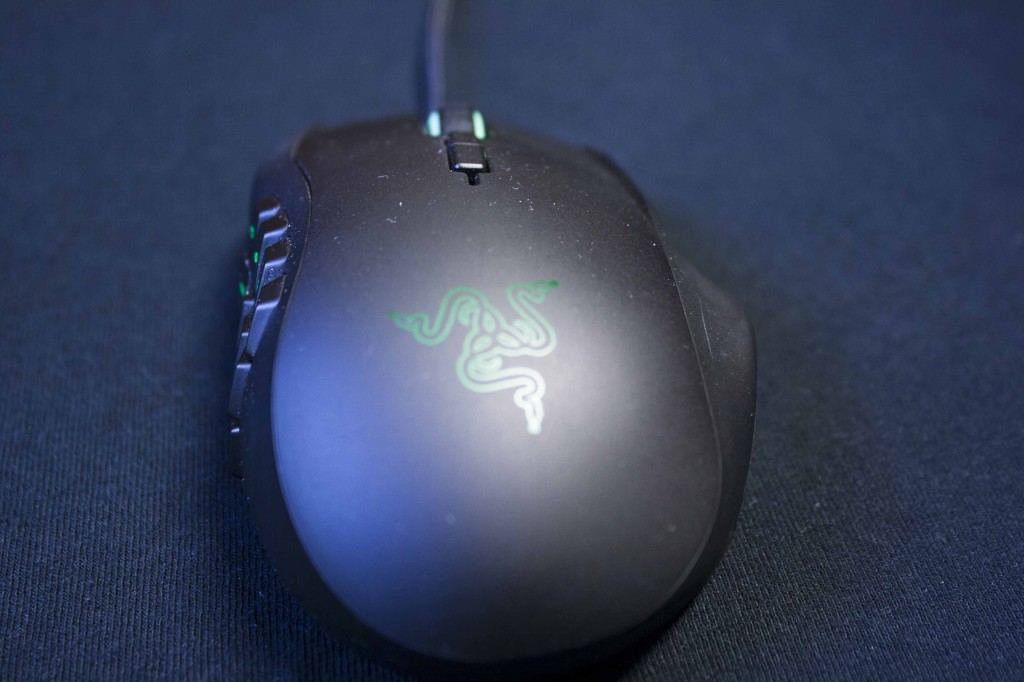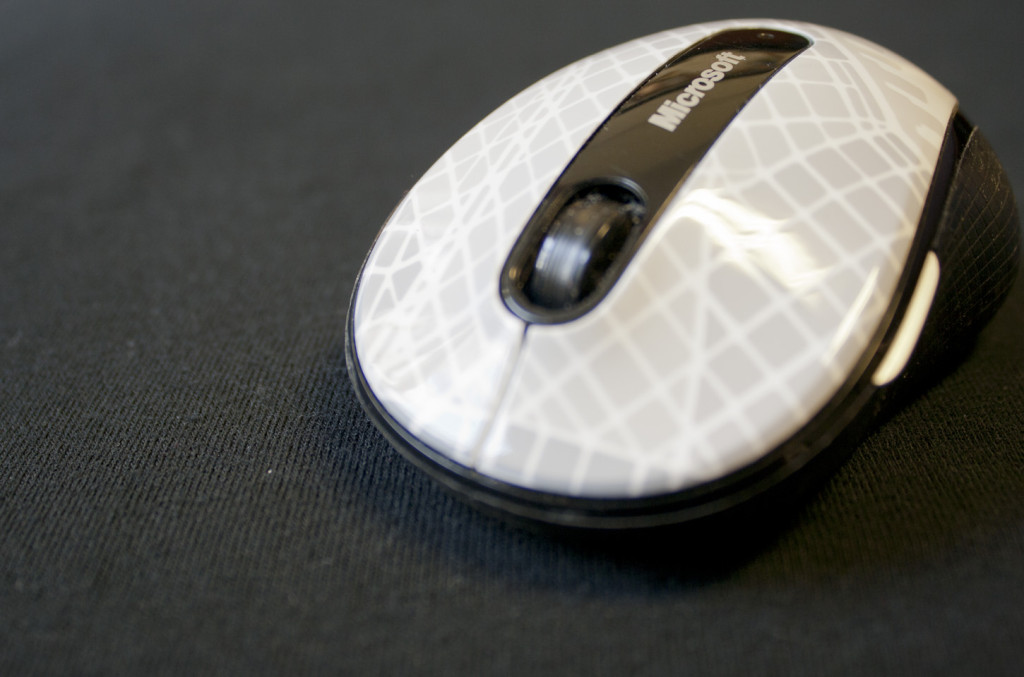SENSORS
Gaming mice are normally equipped with laser sensors, since they provide more accuracy and precision than optical and trackball sensors. However, it’s not too uncommon to find gaming mice that do utilize optical sensors instead of the newer laser ones. The reason for this being that different users simply have different preferences, and some might be more used to or just flat out prefer the feel of optical tracking. There are even some mice that use both optical and laser sensors, the two working in tandem to create a more fluid and precise experience.
One thing that sets gaming mice apart is just how exact their sensors are. The DPI of average mice usually ranges around 400-800, while gaming mice can reach upwards of 8200, and usually allow users to adjust exactly how sensitive they want their mice to be(as mentioned previously) within that huge range.
OTHER MAJOR DIFFERENCES
In addition to the few things we’ve mentioned there are a plethora of smaller, yet equally important, differences between gaming mice and regular mice. Gaming mice normally place a large emphasis on ergonomic design, since long term comfort is essential for those extended video game sessions. As a result, the engineers and designers behind gaming mice have to keep in mind the different grips people have when it comes to mice, and how they can make sure that all the buttons are accessible all the while keeping comfort at a max.
Another difference would be the fact that gaming mice tend to innovate and explore more than regular mice. This creates mice that sometimes might look alien, or extremely unorthodox to the average user, but normally are as such for a specific reason. Take for example the Razer Ouroboros , or the Mad Catz RAT9, both look as if they’ve come straight out of a sci-fi film. One of the reasons for their “unique” appearance is that both of the mice feature interchangeable and adjustable parts which the user can swap out and fine tune to suit their needs or preferences. The other reason might just be because it makes them look edgy and futuristic.
One last thing worth mentioning is the weight of gaming mice. In most cases, gaming mice are weighted vastly difference than average mice, which on the contrary would focus on portability and ease of use. The reason for this weighted approach is simply that it feels and works better for gaming, especially if unwanted lift-offs from the mouse pad want to be avoided. More and more gaming mice are also coming out with interchangeable weights, allowing users to customize their experience even further.
WHO SHOULD GET A GAMING MOUSE?
Now you might be wondering if gaming mice are so fantastic, then why doesn’t everyone get one, even if they don’t play games? Well, besides the large price difference between gaming mice and regular mice, you also have to deal with the fact that it may simply be pointless to go with a gaming mouse if you don’t need it. In fact, it may even be less useful than a regular mouse for some people.
As I mentioned briefly at the start of this article, gaming mice are normally wired, which is done so because bluetooth and wireless mice can sometimes encounter interference, which ultimately leads to worse responses and unexpected consequences. This is something gamers definitely want to avoid, but the average consumer might not mind the occasional interruption if it means having the flexibility and mobility of wireless mice.
Besides the wired/wireless conflict, some users might not like how precise and sensitive gaming mice are. Even at lower DPI, gaming mice feel different than regular mice of a comparative level. Also to keep in mind is the fact that most gaming mice use laser sensors, while a large number of regular mice still use optical sensors, so even that adds to the differences in how the mice act and “feel” for different users.
Gaming mice may just be too complicated for some people all together! If all you want is a peripheral which moves your cursor from point A to point B without much of a hassle on your end, then a gaming mouse is probably not the best of investments.
Now, if you’re looking for a mouse to give you increased precision and responsiveness to grant you an edge over your competition in an FPS (First Person Shooter), there’s a mouse for that. Or if you perhaps need a mouse that will allow you to multitask better during an intense PvP (Player vs. Player) tournament in your favorite MMO (Massively Multiplayer Online game) by allowing you to have more keybindings within reach (usually in the form of buttons on the sides), there’s a mouse for that too. It’s impossible to not find a mouse that is geared towards a specific genre of games, with features tailored to better suit that style of gameplay or gamer. There’s even gaming mice that just strike a fine balance between many different genres, proving to be versatile and functional in any scenario. Add onto this everything that was just covered in the previous sections, and you can see why gamers prefer gaming mice.
FINAL THOUGHTS
Gaming mice are definitely geared towards gamers (in case that wasn’t already obvious with the name), delivering a lot of features that normal mice have no reason to focus on. Coming from someone who had never before used gaming mice until recently, the difference in performance is unmistakable. I’ve enjoyed using macros to automate some of the more tedious or complex actions in video games, the adjustable DPI has certainly proven to be more than useful since my accuracy has increased ten fold, and best of all… I no longer have a jumpy mouse, frustrating me with mis-clicks on wrong hyperlinks while surfing the web, or absolutely preventing me from even attempting to play any sort of game.
So in short, I’ve personally enjoyed having a gaming mouse over my previous one, it’s been nothing but better. However, as I mentioned, they’re not for everyone and I’m not saying they should be! Hardcore gamers, and even gamer enthusiasts all would benefit from upgrading to a gaming mouse, especially if you’re looking for something that you can customize to fit exactly what you want. However, if you don’t play games often, or at all, it’d perhaps be best to stick to the tried and true “everyday” mice that better serve your purpose.
 Technology X Tomorrow's Technology Today!
Technology X Tomorrow's Technology Today!



